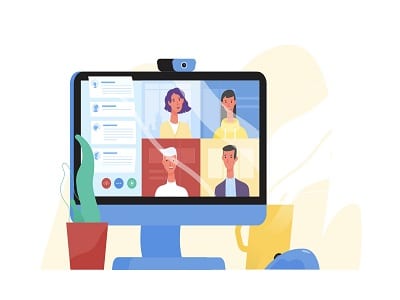These are uncertain times as people around the world seek to protect themselves and loved ones from the coronavirus, named COVID-19 by the World Health Organization. The current health crisis can be especially challenging for those in recovery from an alcohol or substance use disorder.
COVID-19 is particularly dangerous for those over 65 and those with underlying medical conditions. Most at risk are nursing home residents, people with chronic lung disease, asthma, serious heart conditions, or compromised immune systems and the severely obese.
Both the health and scientific communities have expressed concern that those with substance use disorders and those in recovery are also at an increased risk from COVID-19. The risks stem from both “physiological and social/environmental reasons,” according to the National Institute on Drug Abuse (NIDA), as well as the potential for discrimination from health care providers.
Physiological Risks
Because COVID-19 attacks the lungs, people who smoke cigarettes or marijuana, vape or have an opioid or methamphetamine use disorder are at a higher risk. The adverse effect smoking has on the lungs is well established. Research has also found the use of opioids and methamphetamines to negatively impact respiratory and pulmonary health.
Social and Environmental Risks
Those with substance use disorder are more likely to:
- Be homeless or incarcerated, which carries a higher risk of infection
- Lose access to syringe services, medications or other support services during the pandemic
- Encounter discrimination from health facilities stretched to capacity
The order to shelter-in-place increases the risk of relapse, due to:
- Self-isolation
- Boredom
- Increased anxiety or depression
- The loss of in-person support meetings or counseling
What Can You Do to Safeguard Your Recovery?
Routine is especially important when you’re in recovery. Even if COVID-19 has disrupted your recovery routine, there’s a lot you can do to keep yourself firmly on your recovery path. Take control and put together a new routine that works for you.
Keeping your recovery plan and goals firmly in mind, see which of the following you can incorporate into your new schedule:
- Counseling and Support Services
Many therapists and support groups now offer online sessions. Check with your doctor, addiction specialist or the SAMHSA recovery tool listed below for assistance.
Alcoholics Anonymous, Narcotics Anonymous, and other 12-Step groups offer many resources for online meetings, how to connect with others on social media and other online assistance.
- Don’t let Isolation Scare You
Isolation is very dangerous to those in recovery. Keep in touch with friends from rehab, support groups, your sponsor and other sober friends and groups. Stay away from negative people and increase your connection to positive people.
Utilize apps like Skype, FaceTime, Zoom or WhatsApp to video chat with friends, family and support group members.
- Stay Busy and Active
Stay busy with projects you’ve put off, read, listen to music, resume a once-loved hobby or start a new one. You can order any materials you need online. Watch instructional YouTube videos, as there are numerous videos for anything you want to learn. Limit negative news, and read, watch or listen to inspirational stories.
YouTube also has a wealth of physical fitness videos, including yoga. Find an exercise routine you like and add it to your schedule. It’s also safe to walk outside, provided you maintain “social distancing.”
Research healthy eating, download free meditations and learn other ways to improve your spiritual, mental and physical health. If attending religious services is important to you, find an online service you like and add that to your schedule.
Online Help Resource Tools
Below are some excellent online resources.
- Alcoholics Anonymous has a web page devoted to online meeting options, including Zoom and Google Hangouts.
- Narcotics Anonymous provides virtual options on its website.
- SAMHSA provides dozens of virtual recovery programs, including support group resources in addition to AA and NA.
Don’t let the fear of the unknown derail your recovery goals. Take steps to stay on track, reach out to others virtually or by phone and take this opportunity to create a healthy routine that works for you.
Turning Point of Tampa has been offering Licensed Residential Treatment for Addiction, Eating Disorders and Dual Diagnosis in Tampa since 1987.



